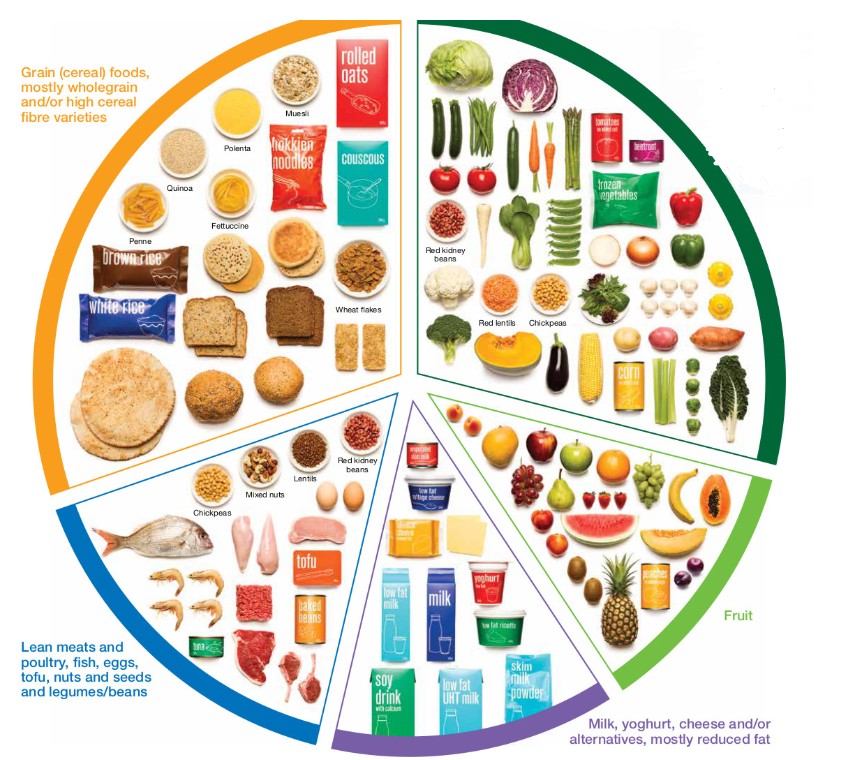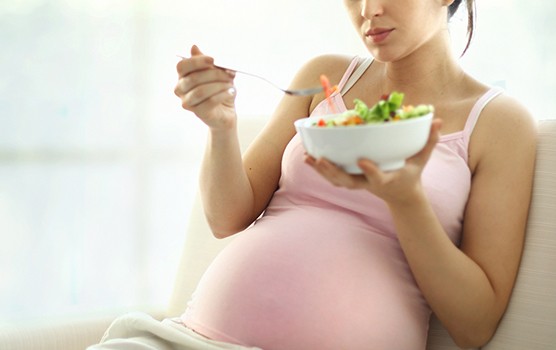Ever wondered if pregnant women really need to “eat for two”? While nutritional needs do increase, overcomplicating dietary choices can create unnecessary pressure on the pregnant individual, their partner, and their family. Here’s a starter guide to pregnancy nutrition to help simplify the process.
Healthy Dietary Patterns During Pregnancy
According to the Australian Pregnancy Care Guidelines1, pregnant women should follow a balanced diet rich in fruits, vegetables, legumes, wholegrains, fish, seafood, unprocessed meats, dairy foods and water.
Conversely, diets high in sweetened foods and beverages, unhealthy fat, processed meats and refined grains are associated with poorer outcomes for maternal and infant health and should be limited.
Essential Food Groups for Pregnancy
- Vegetables and Fruits: High in fiber, vitamins, and antioxidants; they help with glucose tolerance and fetal growth.
- Whole Grains: Provide iron, zinc, and fiber.
- Lean Meats, Poultry, Fish, Eggs, and Tofu: Rich in protein, iron, and zinc for fetal development.
- Dairy Products (Milk, Yogurt, Cheese): Important for calcium intake and may reduce the risk of neural tube defects, infant eczema, and depressive symptoms during pregnancy.
- Nuts, Seeds, and Legumes: Crucial for plant-based diets.
- Water: Increased fluid intake supports the infant’s circulation and overall maternal hydration.

The Risks of Dieting During Pregnancy
Restrictive diets during pregnancy can be harmful as nutritional demands increase. Essential Health Phyiotherapy Dietitian does not endorse having an overly restrictive diet during this crucial milestone. Some diets, such as the Atkins, Paleo, and Ketogenic diets, may not provide adequate nutrients for fetal growth and development. 2
Maintaining a Healthy Weight During Pregnancy
Achieving and maintaining a healthy weight benefits both mother and baby:
- Underweight women: Gaining weight proportionally can reduce the risks of low birth weight, fetal growth restriction, and small-for-gestational-age infants.
- Overweight women: Following a nutrient-rich diet without excessive calorie intake can help prevent macrosomia (large birth weight) and complications related to large-for-gestational-age infants1.
Choosing the Right Pregnancy Supplement
Folate (Folic acid)
Throughout the first trimester, folic acid supplementation can reduce the risk of neural tube defects and congenital heart defects. Having adequate folate may reduce the risks of megaloblastic anemia and help increase birth weight3. However, it does not affect the risk of miscarriage, preterm birth, low birthweight etc.
Iodine
As the requirement of Iodine increases during pregnancy, pregnant women can take an iodine supplement to avoid poor infant neurodevelopment as per supplementation for Pregnant and Breastfeeding Women.
Other popular considerations on supplementation include vitamin B12, Iron, vitamin D, omega-3 fatty acids, multivitamins, and herbal preparations. Some may be beneficial, but not all multivitamin and mineral supplements have strong evidence supporting their effectiveness in pregnancy. Consulting your health professionals before taking any supplements is highly recommended.


